Improving Access to medicines - Improved Payment Administration
Page last updated: 5 February 2019
In the 2018-19 Budget the Government announced the measure Improving Access to Medicines – additional funding for new medicines and improved payment administration.
As part of the measure, the Government set aside a provision of $1.0 billion over the forward estimates to continue to support its commitment to list new medicines on the Pharmaceutical Benefits Scheme (PBS) that have been recommended for listing by the independent Pharmaceutical Benefits Advisory Committee (PBAC).
The measure will also improve payment administration for certain PBS listed medicines to address medicine access and pharmacy cash flow issues raised by the Independent Review of Pharmacy Remuneration and Regulation.
Under the improved payment administration arrangements, the Government will continue to negotiate cost-effective prices with manufacturers for medicines with special pricing arrangements. However, rather than paying a list price for medicines to pharmacies, and receiving rebates from manufacturers to achieve a lower effective price, the Government will instead pay the effective price direct to the manufacturer. This new direct payment to a manufacturer will ensure the pharmacy does not have to pay a potentially significant cost to stock the PBS medicine, reducing the cash flow burden on pharmacies.
There will be no change to the Government’s overall investment in the PBS or its commitment to list all new medicines recommended by the PBAC. The reduction in PBS revenue raised by the Government is fully offset by a corresponding reduction in PBS expenses. Remuneration for wholesalers and pharmacies for stocking and dispensing the medicines involved will also not change.
All other aspects of the PBS will remain unchanged. Patient access to PBS medicines and then the cost to patients of medicines listed on the PBS will not change as a result of improved payment administration.
The Department of Health is responsible for implementing the measure.
Communique - December 2018
Which medicines are covered?
The measure is aimed at medicines with special pricing arrangements, most of which are high cost medicines.
Working with industry
The Government will continue to consult closely with industry on the design, implementation and transition arrangements to implement this measure.
To assist in this process a Project Advisory Board was established on 9 August 2018 to draw on the expertise of participants involved in the manufacture, supply and dispensing of medicines that will be affected by this measure. The Project Advisory Board’s role is to:
- Support, advise and assist the project
- Keep members and stakeholders informed
- Assist in resolving project conflicts and disputes, reconciling differences of opinion and approach, and contributing to the mitigation of significant project risks, and
- Make recommendations to the department as necessary.
The Project Advisory Board comprises membership representing the entire PBS supply chain. The Board meets as required.
|
Name |
Role |
Position title |
Organisation |
|
Penny Shakespeare |
Chair |
Deputy Secretary, Health Financing |
Department of Health |
|
Adriana Platona |
Deputy Chair |
First Assistant Secretary, Technology Assessment and Access Division |
Department of Health |
|
Thea Daniel |
Member |
Assistant Secretary, PBS Pricing and Policy Branch |
Department of Health |
|
Ben Sladic |
Member |
Assistant Secretary, Pharmacy Branch |
Department of Health |
|
Elizabeth De Somer |
Member |
Chief Executive Officer |
Medicines Australia |
|
Donna Edman |
Member |
Chief Operating Officer |
National Pharmaceutical Services Association |
|
David Quilty |
Member |
Executive Director |
Pharmacy Guild of Australia |
|
Lucy Cheetham |
Member |
Director – Policy and Research |
Australian Private Hospitals Association |
|
John Green |
Member |
Pharmacy and Medications Representative |
Medical Software Industry Association |
|
Michael Dooley |
Member |
President |
Society of Hospital Pharmacists of Australia |
|
David Slade |
Member |
Representative |
Community Pharmacy Chemotherapy Services Groups |
|
Tony Piazza |
Member |
National Manager, Pharmaceutical Benefits |
Department of Human Services |
|
* State and Territory Health Departments are represented on a rotational basis |
|||
Technical working groups have also been established. The role of the technical working groups is to provide more detailed examination, findings and recommendations (where appropriate) in specific areas of technical need identified by the Department of Health or the Project Advisory Board. To date the technical working groups have provided advice on new arrangements to:
- Reconcile the outcomes of dispensing episodes and make appropriate payments back through the supply chain. Two separate technical working groups were held focusing on possible approaches for community pharmacy, and separately, hospital pharmacies and compounders of medicines;
- Ensure that Goods and Services Tax implications of the new direct-to-manufacturer approach to payments are identified and can be addressed by the supply chain; and
- Update IT systems to ensure there is appropriate data and systems functionality for reconciliation and related payments to occur across the supply chain.
When are the new arrangements being implemented?
The first phase of the new payment arrangements is to be implemented from 1 July 2019 involving a subset of medicines with special pricing arrangements.
From 1 July 2020 the new payment arrangements will be progressively rolled out to include all medicines with special pricing arrangements.
Further information
For further information please email the PBS Subsidy Taskforce.



